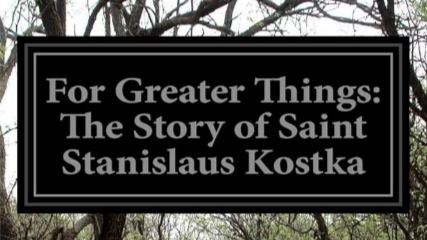Chapter I‑For Greater Things
byChapter I – For Greater Things opens with a striking image of Stanislaus Kostka, a seventeen-year-old nobleman, quietly slipping through the western gate of Vienna in August 1567. Though clothed in garments befitting his high birth, his steps are directed not toward a royal court or military glory, but toward Augsburg, where he hopes to follow a divine call. The contrast between his noble attire and his humble bread meal reveals a young man committed to shedding privilege in favor of a deeper purpose. Rather than chasing the accolades typical of his station, Stanislaus walks away from the comfort of his family’s wealth with a heart set on service and a soul drawn to God. Each stride away from Vienna marks not a retreat, but an ascent toward a greater spiritual destiny. With only a change of clothes and his unwavering conviction, he begins a pilgrimage that will define not only his future, but his sanctity.
Despite his aristocratic bearing, Stanislaus wastes no time in renouncing the worldly markers of nobility. Shortly after leaving the city, he offers his luxurious outerwear to a poor man and dons a peasant’s tunic—an outward sign of his internal detachment from status and possession. His choice of clothing becomes a testament to humility, not disguise. As he moves through small towns and open fields, people are drawn to him, sensing something noble not in his appearance, but in his quiet resolve. He never boasts of his heritage or complains of discomfort. Instead, he meets each challenge—hunger, fatigue, or the uncertainty of shelter—with serenity and prayer. The road becomes his chapel, and every encounter a quiet act of evangelization, not through words, but by the witness of simplicity and faith. In each village, he blends into the margins of society, never asserting rank, but always radiating peace.
Stanislaus’s decision to leave behind his family’s wealth, influence, and expectations is not impulsive. It follows months of inner struggle, ignited by a profound spiritual longing and sustained by a divine grace that surpasses fear. While others might have hesitated under the weight of paternal disapproval or social disgrace, Stanislaus moves with clarity. His calling to the Society of Jesus, though not yet formalized, feels to him like a fire that cannot be quenched. This inner flame lights his path even when the road becomes rough or lonely. Each night in unfamiliar places only deepens his trust in God’s providence. Though physically alone, he remains spiritually anchored. His quiet joy in hardship is not naïve but rooted in the conviction that obedience to God’s will brings the only lasting peace.
What makes Stanislaus remarkable is not simply that he left a privileged life behind—it is that he did so willingly, without bitterness or spectacle. He does not cast himself as a martyr of family resistance but as a joyful servant of something greater. He chooses the discomfort of the road over the cushions of comfort because he sees them as necessary steps toward his mission. His eyes are not on Rome yet, but on the Lord who calls him forward. When people question his journey, he answers gently and with conviction, never trying to convince but always inviting by his example. Even when met with skepticism, his sincerity wins hearts. A host at a country inn, impressed by his poise and gentle words, offers food and rest without charge. Such moments affirm that his path, though unmarked by status, is protected by grace.
This chapter lays the foundation of Stanislaus Kostka’s transformation from a noble youth into a pilgrim of purpose. He does not seek sainthood—he simply desires to be faithful. Yet in that fidelity, even in these first steps, his sanctity takes root. His journey is not defined by miles walked or towns crossed, but by the unwavering devotion that turns each step into an act of love. In a society obsessed with wealth and recognition, Stanislaus becomes a quiet counterpoint—one whose greatness is measured not in gold, but in the strength of his spirit. The chapter leaves us with the image of a young man walking alone yet accompanied, poor yet profoundly rich, beginning a journey not toward escape, but toward eternal fulfillment.

